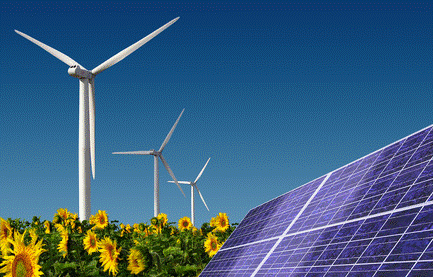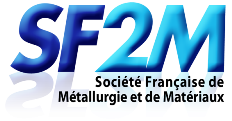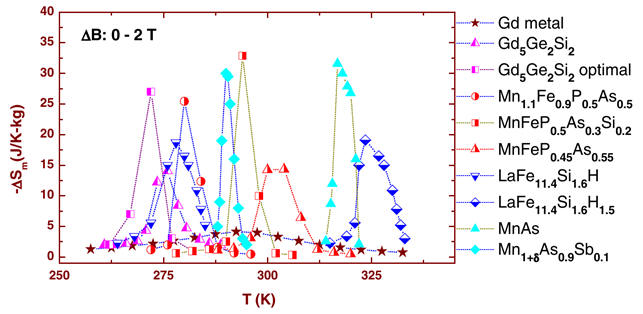
JA 2015
Materials for Energy Generation
October 26th – 28th, 2015, Chimie ParisTech
PARIS

Topic 3: Caloric effects
Coordinator : Martino Lo Bue, ENS Cachan, SATIE-CNRS.
Invited conference - Solid state cooling: magnetocaloric effect and a view on electrocalorics - V.Basso (INRIM, Torino).
The term caloric effect generally refers to the thermal change of an electrically, magnetically or mechanically responsive material when its order parameter is changed by the action of the conjugate field. The effect is strongly enhanced in the proximity of a ferroic transition where the system undergoes a phase change between an ordered and a disordered state. The magnetocaloric effect, where the transition, in isothermal conditions, is lead by the magnetic field, has been, since his first report by Weiss and Picard in 1917, the most studied between the caloric effects. Recently the interest in electrocaloric (coupling between electrical field and polarization) and barocalric (coupling between pressure and ferroelastic order parameters) has been growing exponentially.
The main reason for this renewed interest in caloric effects resides in the possible application of caloric materials as refrigerant in solid state cooling devices. Modern society is heavily reliant on refrigeration and the perspective to substitute volatile refrigerants that are global warming agents with a most sustainable and more energy efficient solid state technology looks extremely attractive.
The symposium is devoted to the study of the caloric effect in materials with particular emphasis on their optimization for energy applications.
The main topics are:
- synthesis and characterization of caloric materials showing optimal reversible entropy change at the temperatures of interest for applications;
- use of ab initio calculations to identify the compositions/substitutions more suitable to achieve the best caloric effects;
- study of the production routes allowing the synthesis of optimized material and capable to sustain industrial scale production.

Variation d'entropie magnétique isotherme pour différents composés sous une variation de champ magnétique de 0 à 2 Tesla .
Reproduit de : Brük, J. Phys D : Appl. Phys. 38 (2005) R381-R391, Copyright 2005, Institute of Physics.
